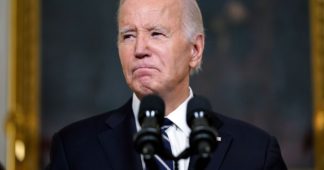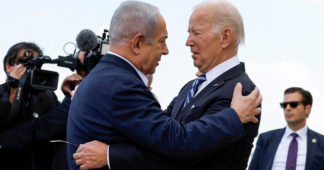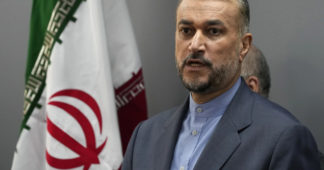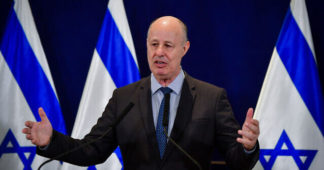Administration officials tell CNN they expect a ground incursion in late spring or early summer
February 29, 2024
US officials believe that Israel is planning to launch a ground invasion into Lebanon in late spring or early summer if a diplomatic solution is not reached, CNN reported on Thursday.
“We are operating in the assumption that an Israeli military operation is in the coming months,” an unnamed senior Biden administration told the outlet. “Not necessarily imminently in the next few weeks but perhaps later this spring. An Israeli military operation is a distinct possibility.”
Israel and Hezbollah have been trading heavy fire across the border since October 7, and Israeli officials have been hinting at invading southern Lebanon if Hezbollah doesn’t move back from the border. But the administration official told CNN that an agreement that only pushes Hezbollah back won’t be enough for Israel.
The official said that Israel wants to go into Lebanon to “mow the grass” to destroy some of Hezbollah’s infrastructure. If an invasion doesn’t happen, the official said there would need to be some sort of buffer zone where either troops from Lebanon’s regular army or UN peacekeepers are deployed.
A second administration official said that while there is talk about a diplomatic solution, there is a “growing group” within the Israeli government “that says: ‘Hey, let’s just take a shot. Let’s just do it.’” The official said an Israeli ground incursion could lead to a “major, major escalation that we don’t even know the proportions of.”
US intelligence has determined that if Israel escalates the situation into a full-blown war, it likely wouldn’t be able to handle fighting Hezbollah and maintaining military operations in Gaza. That means Israel could be hoping for direct US military intervention if things escalate.
The CNN report said the US was the main mediator between the two sides, but the US does not talk directly to Hezbollah. And the US official put in charge of finding a diplomatic solution is Amos Hochstein, who was born in Israel and served in the Israeli Defense Forces (IDF), making it unlikely Hezbollah would view him as a neutral mediator.
Sources close to Hezbollah have said it would halt attacks on northern Israel if a ceasefire were reached in Gaza. But Israel is sending the opposite message, as Israeli Defense Minister Yoav Gallant said a pause in Gaza would mean an escalation in southern Lebanon.
US officials have acknowledged that a war in Lebanon would benefit Israeli Prime Minister Benjamin Netanyahu, who is expected to face a political reckoning for allowing the October 7 attack to happen once Israeli operations in Gaza are over.
“Once the war is over, his expiration date arrives,” an administration official said. “So he needs to maintain the impression, maintain the narrative that Israel is still in the middle of a campaign, to try to stave off efforts to remove him.”
Despite Netanyahu’s motive for a major regional war and the massive civilian casualty rate in Gaza, the US continues to provide Israel with military support. US officials previously told HuffPost that they believe President Biden’s policy of unconditional military aid to Israel could embolden Israel to expand in Lebanon and lead the US into a major Middle East war.
We remind our readers that publication of articles on our site does not mean that we agree with what is written. Our policy is to publish anything which we consider of interest, so as to assist our readers in forming their opinions. Sometimes we even publish articles with which we totally disagree, since we believe it is important for our readers to be informed on as wide a spectrum of views as possible.











